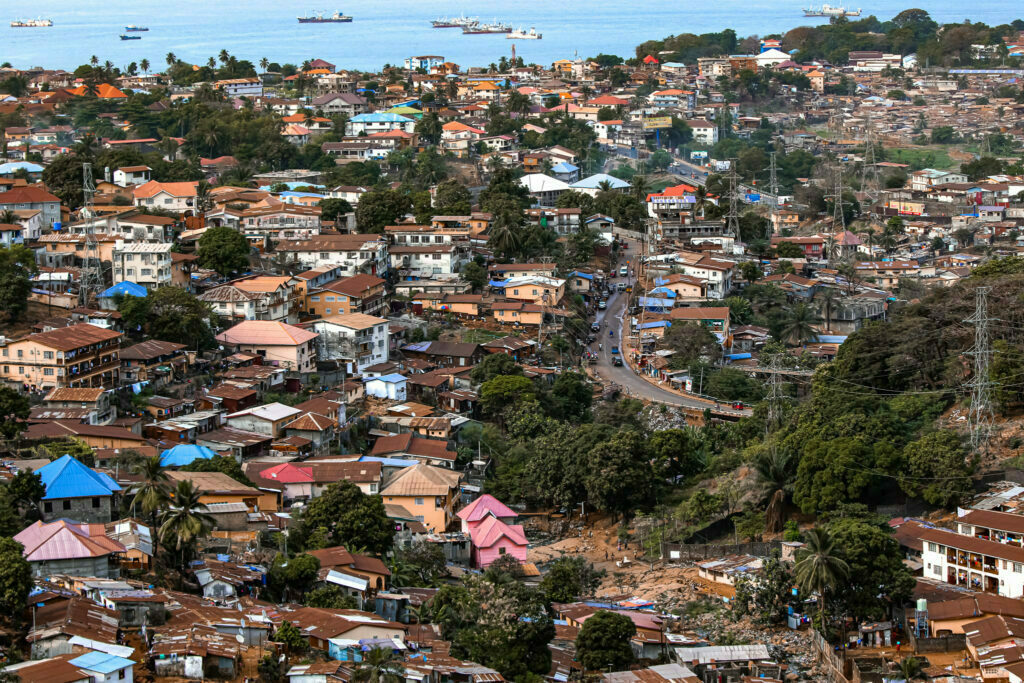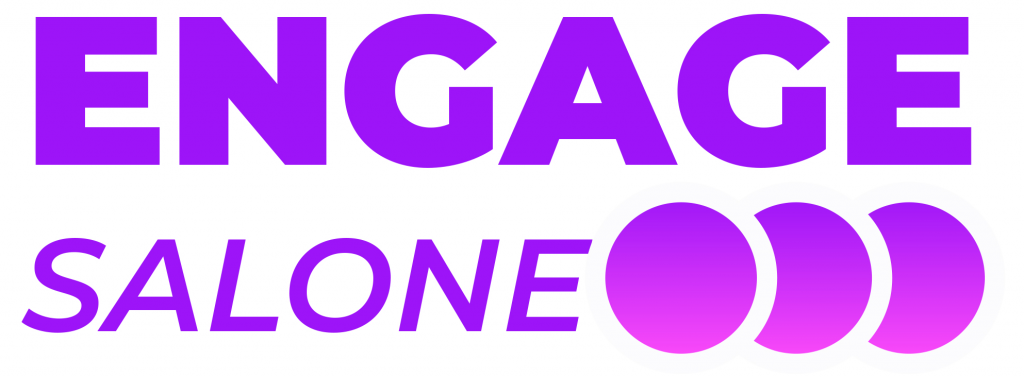The capital, Freetown has turned into a sprawling slum. From east to west, it has lost shape, looking less and less like a nation’s capital. What used to be a small, beautiful city on the coast has become an extremely busy and overpopulated place with no order. Freetown needs to be freed from its freeness and that is what this piece is about.
Establishing the problem here can be done quite effortlessly. You only need to step out—and you are met with a frenzy from virtually all directions and sources. The city is a market. And it is looking like a slum too. Everyone is selling everywhere. In fact, the norm now is that every new building must have a shop on the ground floor, regardless of the location. Commercial motorbikes (Okadas) and their cousins the three-wheelers (kekehs) are scattered like an upset swarm of bees crisscrossing the roads with passengers whose life expectancy drops every time they get on one of them. They make their own rules. In fact, they have no rules. They can choose to drive in the opposite direction without any consideration for the law or other road users. There are Okada and Kekeh stations everywhere.
People who own restaurants and bars can decide to install the loudest speakers and play their music way into the night. Also, without consideration for anyone or any rules. The churches and mosques are not different. They use religion to take advantage of communities that are overly respectful of anything that carries the name of God. Street workshops/garages are popping up everywhere and you wonder how this is even allowed to happen when there is someone somewhere paid to stop it. Abandoned vehicles? All over the place.
There is filth everywhere–it is either piles of garbage at street corners or litter all over the place. Communal garbage disposal sites have all disappeared and huge new buildings have popped up where they used to be.
And in Freetown today, you have no chance of shielding yourself from this disorderliness, regardless of where you live. Everyone who lives in the city and its neighbour, the rural district, is living in a slum by default. You have no choice. Sad, but this is our reality.
How did we really get here? We inherited a very beautiful city from our ancestors and instead of improving on it and keeping what deserves preservation, we have basically undone Freetown. We have turned it into an eyesore and the destruction goes on as we turn Lumley Beach into a massive colony of baffas and as we continue to build into the hills, leaving the landscape looking awfully patchy. This is increasing the pressure on the environment, contributing to the deadly floods and mudslides that we have been seeing.
Everyone with authority should take responsibility for this mess. Politics would not allow the leaders to make decisions that are in the interest of everyone. They would rather let dangerous bikes take over the city; allow traders to turn the city into a market and leave everyone to build where they want to build. This is done instead of taking action to protect residents and maintain order and peace in the nation’s capital.
The central Government introduced decentralisation but has been unprepared to let go and it seems to be locked in a perennial war with the current administration of the city. Reason? Politics. Whether this is true or not does not really matter. What is important is that the Government and Freetown City Council have not been able to work together for the good of “Freetonians”, to borrow a word from Mayor Yvonne Aki-Sawyerr. The Mayor has recently been concentrating on a lot of environmental projects. She is working really hard on heat and climate adaptation. This is absolutely important considering how fast the globe is heating up and how climate change is impacting the lives and livelihoods of ordinary people. However, we seem to have dropped the ball on the very basics, including sanitation, law and order. The Council has a set of clearly written bylaws. If we enforce half of those laws, the city would not be in this dorti-kata and chaka-chaka slum state.
The transport authorities and the police are also complicit because they have turned law enforcement into an enterprise. No one is safe on the roads. Police officers and road safety personnel are busy chasing bike riders all day, not to stop them from breaking the rules, but for extortion. In fact, the sight of police chasing Okadas and hassling them always looks like scenes from Tom and Jerry. Jokes!
All of this goes back to some very unfortunate Sierra Leonean peculiarities. We usually have zero consideration for the other person. As long as a don get sai for pak me motor car, na go a go so. Whatever happens after that is somebody else’s problem. We have lowered standards on everything—from food and quality of life to development projects and even politics. No standards. So, we could all be sitting on filth in the city and everyone—the Government, the Council and all the authorities would be fine with it, and they would tell you, we don try. This national laisser-faire attitude affects the way we the people appreciate and appraise leadership and also influences the leaders’ behaviour in office.
A lot of these issues have socioeconomic roots. People are desperate to make a living. So, they sell everything, everywhere. There are too few jobs and opportunities for young people in the country. So, a lot of them see Okada or Kekeh as employment. Housing is a massive problem. In fact, it is a crisis that we are not acknowledging. So, everyone is desperate to build everywhere either to escape predatory house owners or the well-to-dos building more properties. These are real everyday issues affecting working people. They are also signs that things are becoming extremely hard for people. But there has to be a balance between livelihoods and sanity in the city. There also has to be due consideration for the safety and wellbeing of everyone living in the city. We cannot turn the Capital into a state of anarchy just because the government has been failing to look after its citizens and guarantee a life of dignity.
What is the future of Freetown? Should we just give up and start thinking of a new capital? Or can we and should we try to salvage what is left of Freetown? Whatever course we choose to take as a nation, it would require bold, visionary leadership at both central and local government levels to make any changes. Leaders need to think less politically and stop seeing people as mere “constituencies” and votes because it is those political calculations that are responsible for the inaction of the leaders on many of these issues. If other small countries and cities can get it right, why can’t we?
Whatever you are up to in the City this weekend, find the few nice things that are left and enjoy.
About The Author
- Engage Salonehttps://staging.engagesalone.org/author/eng21_admin/
- Engage Salonehttps://staging.engagesalone.org/author/eng21_admin/
- Engage Salonehttps://staging.engagesalone.org/author/eng21_admin/
- Engage Salonehttps://staging.engagesalone.org/author/eng21_admin/


